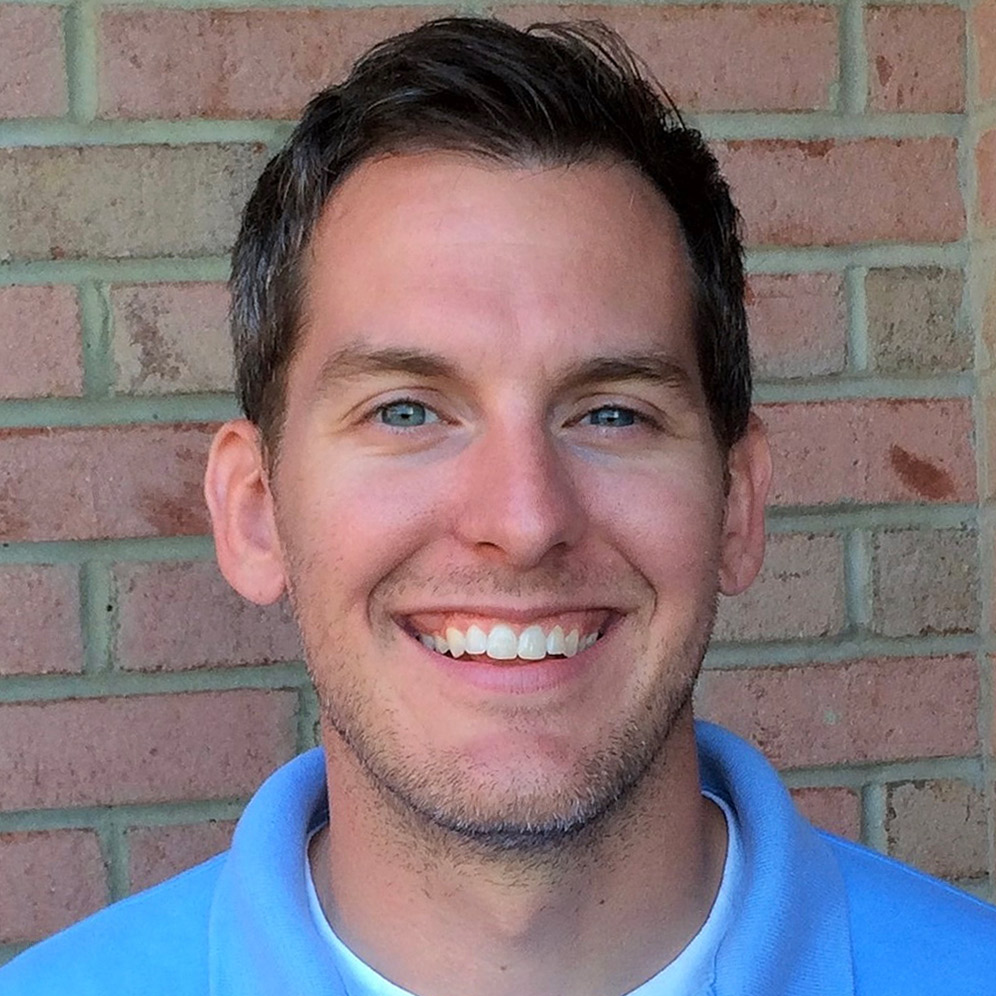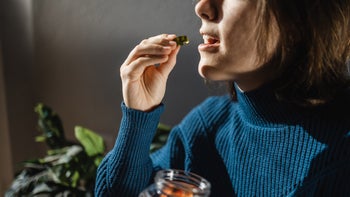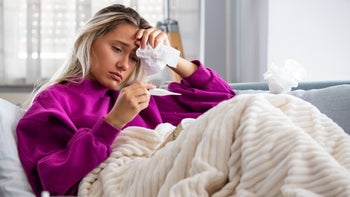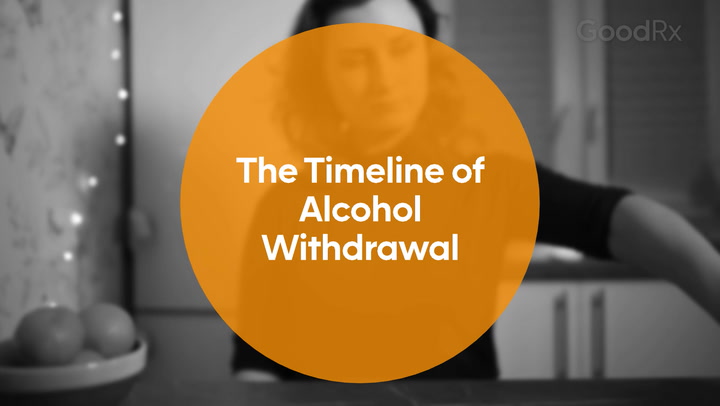
The Negative Effects of Alcohol on Your Sleep
Key takeaways:
You may think of alcohol as a sleep aid, but even small amounts at night can hurt your sleep.
Alcohol can reduce your quality of sleep, the amount of time you sleep, and your daytime energy.
There are some simple ways to improve your sleep habits, but you should avoid mixing alcohol with certain sleep aids due to the risk of overdose and death.

Alcohol may seem like a good idea before bed. It helps you feel relaxed, calm, and sleepy. But it only hurts your ability to get good rest throughout the night. Whether you are having a few drinks or you have a long-term alcohol use disorder, alcohol and sleep do not mix.
Everyone needs restful sleep to feel and function well during the day, so read on to learn about how alcohol is harmful for sleep and ways to help.
Can alcohol cause sleep problems?
Alcohol can create and worsen many sleep problems. This is true for people who have an alcohol use disorder, as well as anyone who has a few drinks at night.
Search and compare options
Alcohol’s ability to create poor sleep often surprises people because they incorrectly believe that alcohol is a sleep aid. Since it is a sedative, you may notice that alcohol makes you feel slowed down and tired.
Although it is true alcohol can help you fall asleep faster, it can disrupt your normal sleep cycles. With your healthy sleep patterns thrown off, you can wake up feeling groggy and tired.
How does drinking alcohol impair my sleep?
Your sleep naturally occurs in a series of stages that repeat several times each night. The timing and duration of these stages are key to feeling well rested in the morning, but alcohol disrupts the whole process.
When you drink alcohol and try to go to sleep, your alcohol levels first rise and then fall later in the night. These changes negatively affect your sleep in three major ways:
You’ll wake up more often: Alcohol may put you to sleep quickly, but the later part of your sleep will be broken up by frequent waking.
You’ll have more non-REM sleep: Non-REM sleep is needed each night, but drinking even small amounts of alcohol will create imbalance.
You’ll have less REM sleep: REM sleep is when a lot of your dreaming takes place, and having less of it can make you feel drained.
You don’t need to have a drinking problem or be an alcoholic to suffer the effects of alcohol on your sleep. Even a drink or two can negatively impact your sleep.
Read more like this
Explore these related articles, suggested for readers like you.
How does chronic drinking affect my sleep?
As someone continues drinking to the point of being an alcoholic or having an alcohol use disorder, they will have some new and some similar symptoms. Chronic drinking may lead to sleep problems like:
Needing more time to fall asleep
Waking up often throughout the night
Feeling very tired after waking up
Being sleepy during the day
When someone with an alcohol use disorder tries to stop drinking, they could experience withdrawal. One symptom of alcohol withdrawal is insomnia. If they do sleep, their REM periods will be abnormal. These changes in REM sleep can lead to serious mental health symptoms while awake, like seeing and hearing things that are not really there.
Even later in recovery from alcohol, you could struggle to sleep well. People in recovery from alcohol often suffer from:
Poor overall sleep
Daytime fatigue
Being less tired and more awake at night
These uncomfortable sleep symptoms may encourage you to relapse on alcohol in hopes of achieving better sleep. If there is a relapse, you could see short-term improvements. But as alcohol use continues, the long-term sleep problems will return.
After chronic drinking, healthy sleep patterns can return, but it will take time. The best choice you can make is to avoid the harms of alcohol in the first place.
Does alcohol make sleep problems worse?
So far, you’ve learned that a few drinks of alcohol can disrupt a night’s sleep. Also, chronic and current alcoholism can make normal sleeping patterns impossible. Adding to the problem is that alcohol can make current sleep problems worse.
Does alcoholism cause insomnia?
There is a strong connection between alcohol and insomnia. Alcohol can make insomnia worse, and those with insomnia are more likely to use alcohol.
Insomnia includes having trouble falling or staying asleep and waking up too early in the morning.
About 30% of people with insomnia have tried using alcohol as a sleep aid during the last year. And of all people with alcohol problems, as many as 67% have insomnia as well. A challenge with insomnia and alcohol is knowing which problem came first, but one definitely makes the other worse.
Does alcohol cause sleep apnea?
Sleep apnea is a condition that causes your breathing to pause during the night, which can lead to a lack of oxygen. Alcohol may not trigger the start of sleep apnea. But, like with insomnia, it can make it a lot worse.
Alcohol leads to increased issues with sleep apnea in two ways:
It causes the muscles in your throat to relax, which blocks your airway.
It hinders your ability to wake up when your breathing is interrupted, leading to more time without oxygen.
Due to the dangers of drinking with sleep apnea, you should cut back or end your alcohol consumption if you have sleep apnea.
Tips for better sleep: Ways to reduce the impact of alcohol
Drinking stands in the way of a good night’s sleep, but there are many simple things you can do to sleep better and wake up rested. Tips for better sleep include:
Setting a schedule by getting to bed and waking up at the same times each day
Limiting caffeine and nicotine
Getting plenty of exercise, but not too close to bedtime
Creating a space for sleeping that is cool, calm, and dark
Talking to your doctor or therapist for new ideas
What sleep aids should you avoid if you are consuming alcohol?
Medications made to help sleep often do not mix well with alcohol, so be sure to talk with your healthcare provider about how much and how often you are drinking. Mixing sleep medications with alcohol can slow down your heart and your breathing and can increase the risk of overdose and death.
Avoid using alcohol with sleep medications like:
Eszopiclone (Lunesta)
Zolpidem (Ambien)
Zaleplon (Sonata)
You should also never mix alcohol with benzodiazepines. Benzos (as they are often called) are a group of medications used to treat anxiety and sleep problems. Benzos include:
Alprazolam (Xanax)
Diazepam (Valium)
Lorazepam (Ativan)
Clonazepam (Klonopin)
Are there supplements I can take before bed to help fight a hangover?
After drinking, you may look for quick remedies to sleep better and avoid a hangover the next morning. There is no sure way to prevent the damage of alcohol, but you can take action to limit the harm.
Research indicates that having plenty of zinc and nicotinic acid — a vitamin B complex — can reduce the harm of alcohol by helping the body process it more quickly. Be sure to consult with a doctor before adding supplements, but these two could help you feel and sleep better, even after alcohol use.
The bottom line
There are lifestyle changes that you can make to improve your sleep, and there are supplements that might reduce the harms. But the only way to avoid the risks of alcohol is to not drink it. Alcohol will negatively affect your sleep and energy. It’s not a sleep aid. Rather, it’s a sleep danger.
If you or someone you know struggles with substance use, help is available. Call SAMHSA’s National Helpline at 1-800-662-HELP (4357) to learn about resources in your area.
Why trust our experts?


References
Colrain, I. M., et al. (2014). Alcohol and the sleeping brain. Handbook of Clinical Neurology.
National Institute of Neurological Disorders and Stroke. (2019). Brain basics: Understanding sleep.
American Addiction Centers. (2023). Alcohol and Insomnia: How Alcohol Affects Sleep-treatment/insomnia.
National Institute on Drug Abuse. (2021). Prescription depressant medications.
Verster, J. C., et al. (2019). Dietary nutrient intake, alcohol metabolism, and hangover severity. Journal of Clinical Medicine.




























